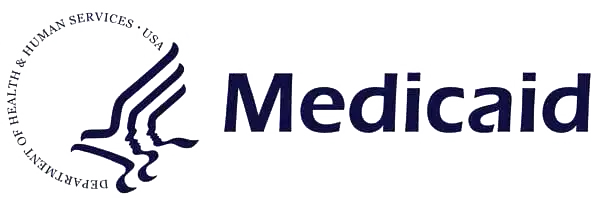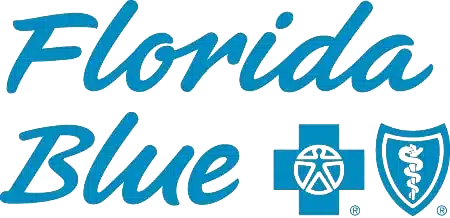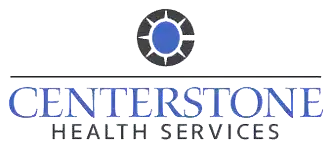Depression Therapy
Depression is a physiological disorder that affects the mind and body by reducing energy levels, the desire to see positive outcomes in the future, and having a sensation of persistent sadness.
Start Today!
Availability
In-person or via telehealth
In person or via telehealth, depending on therapist availability.
Booking
1–2 weeks
Appointments can usually be scheduled within 1–2 weeks, with some providers offering sooner for urgent needs.
Duration
45-60 minutes
Sessions typically
last 45–60 minutes..
How Can Depression Therapy Improve Your Life?

Targeting Root Causes: Utilizes diverse techniques to address specific aspects of the mind contributing to depressive symptoms.

Providing Comprehensive Care: Integrates multiple therapeutic methods to offer a holistic approach to treating depression.

Reducing Depressive Symptoms: Aims to alleviate the symptoms of depression, leading to improved mental well-being and functioning.
Where Can I Take This Treatment and How?
Depression Therapy is available at multiple convenient locations, including our Naples, Fort Myers, Tampa, and Southwest Florida (SWFL) offices.
Not located near one of our offices or prefer meeting remotely? We also offer telehealth sessions to anyone located anywhere in Florida, so you can access support from the comfort of your home.
Ready to take the next step? Call us at 239-537-9646 or Fill out our Scheduling Form to get started today.
- (239) 688-2781
-
12811 Kenwood Lane
Fort Myers, FL 33907
Suite 213: Therapy
Suite 201: Psychiatry
- (239) 365-2258
-
2345 Stanford Ct.
Naples, FL 34112
Suite 602: Check-In
We accept insurance
We accept major commercial insurance providers and Medicaid.















Frequently Asked Questions (FAQ) about Depression Therapy
What is Depression Therapy?
Depression Therapy is a type of mental health treatment designed to help people manage and overcome symptoms of depression. It often involves talking with a trained therapist to explore thoughts, feelings, and behaviors contributing to depression, and to develop healthier coping strategies. Common approaches include Cognitive Behavioral Therapy (CBT), Interpersonal Therapy (IPT), and sometimes supportive counseling.
Who provides Depression Therapy?
Depression Therapy is typically provided by mental health professionals such as:
- Mental Health Counselors
- Clinical Social Workers
- Marriage and Family Therapists
- Psychologists (PhD or PsyD)
- Psychiatrists and psychiatric nurses. Typically, this type of therapy is not provided, or it is limited. Their focus is to treat with medications.
What therapeutic techniques are used to treat depression?
Depression can be addressed through various therapeutic methods, each targeting different aspects contributing to depressive symptoms. The Therapy Treatment Team employs several evidence-based techniques, including:
– Cognitive Behavioral Therapy (CBT): Focuses on identifying and altering negative thought patterns and behaviors.
– Dialectical Behavioral Therapy (DBT): Combines cognitive-behavioral approaches with mindfulness practices to regulate emotions and improve interpersonal relationships.
– Motivational Therapy: Enhances an individual’s motivation to engage in positive behavioral changes.
– Exposure Therapy: Helps individuals confront and reduce avoidance behaviors related to distressing situations or thoughts.
– Eye Movement Desensitization and Reprocessing (EMDR): Utilizes guided eye movements to process and integrate traumatic memories.
– Acceptance and Commitment Therapy (ACT): Encourages acceptance of thoughts and feelings while committing to actions aligned with personal values.
These diverse approaches allow therapists to tailor treatment plans to each individual’s unique needs.
How do these therapies address different aspects of depression?
Each therapeutic technique targets specific components contributing to depression:
– CBT: Addresses negative thought patterns and behaviors.
– DBT: Enhances emotional regulation and interpersonal effectiveness.
– Motivational Therapy: Increases readiness and commitment to change.
– Exposure Therapy: Reduces avoidance and anxiety related to specific situations or thoughts.
– EMDR: Processes traumatic memories impacting current mental health.
– ACT: Promotes psychological flexibility and value-driven actions.
By integrating these methods, therapists can comprehensively address the multifaceted nature of depression.
How can Depression Therapy improve my life?
- Reducing symptoms of sadness, hopelessness, and fatigue
- Improving mood and emotional resilience
- Enhancing problem-solving and coping skills
- Improving relationships and social functioning
- Increasing motivation and energy for daily activities
- Supporting long-term mental wellness and relapse prevention
What can I expect during therapy?
- A safe, confidential space to talk openly
- An initial assessment to understand your history and symptoms
- Collaborative goal-setting with your therapist
- Learning techniques to identify and change negative thought patterns
- Developing coping strategies to manage emotions and stress
- Regular sessions, often weekly, lasting about 45–60 minutes
How many sessions are typically needed?
- Short-term therapy may last 8–20 sessions
- Some people may need longer-term therapy depending on severity and individual needs
- Your therapist will tailor the duration to your progress and goals
Is Depression Therapy suitable for everyone?
While Depression Therapy can benefit most people experiencing depression, it may not be suitable or sufficient alone for:
- Severe depression with suicidal thoughts requiring immediate medical care
- Individuals with certain co-occurring conditions need specialized treatment
- Those who prefer or require medication in combination with therapy
It’s important to discuss your specific situation with a mental health professional to determine the best treatment plan.
How can I begin my therapy treatment for depression?
Getting started is simple. Just complete our Scheduling Form or give us a call at 239-537-9646.
Our team will match you with a licensed therapist experienced in therapy treatment for depression Therapy and guide you through the process of scheduling your first appointment.
We’re here to support you every step of the way.
